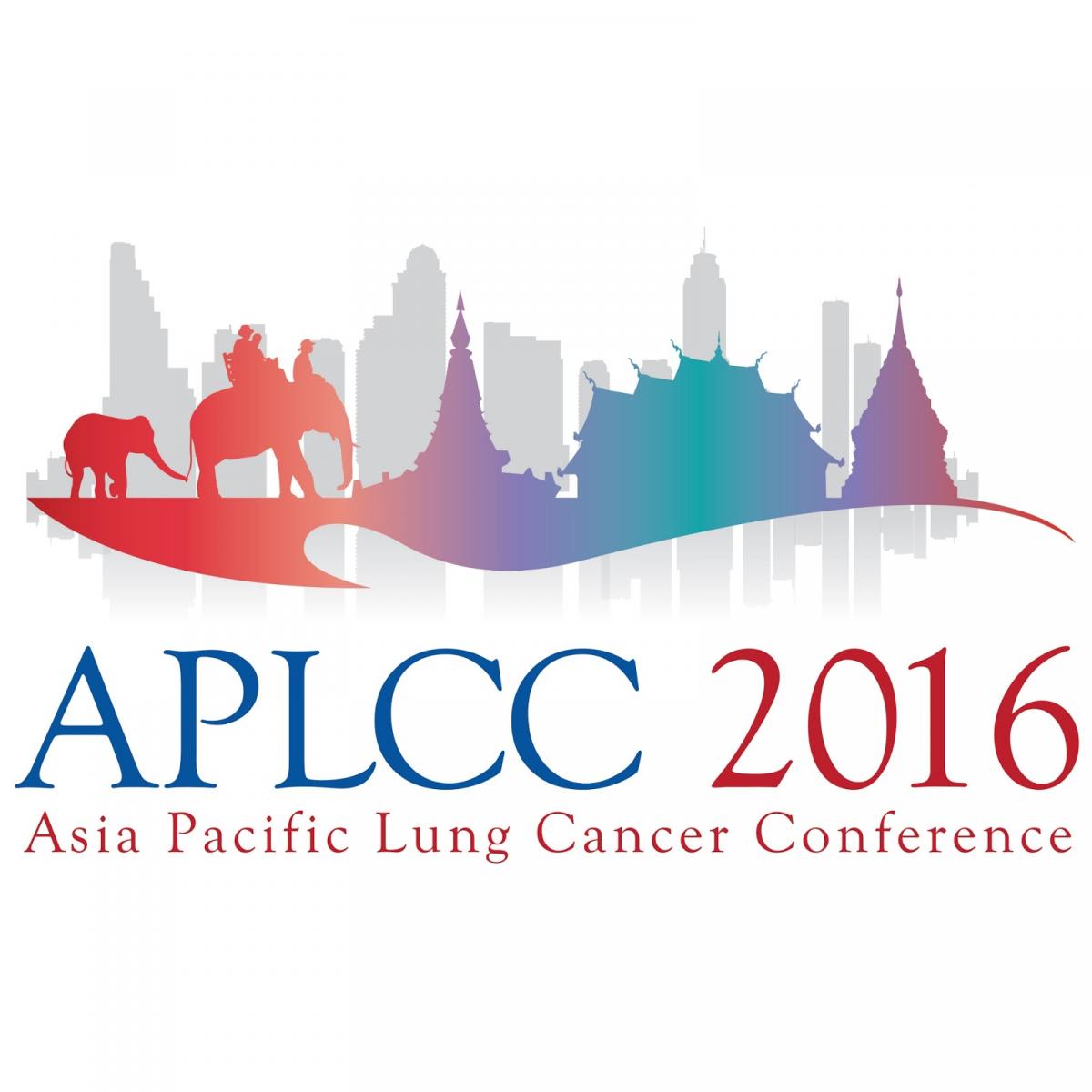APLCC 2016 in Thailand: Preventing lung cancer is public health imperative

Asia Pacific Lung Cancer Conference (APLCC) to Open in Chiang Mai, Thailand: 13-15 May 2016.The biennial Asia Pacific Lung Cancer Conference (APLCC 2016), organized by the International Association for the Study of Lung Cancer (IASLC), will be held in Chiang Mai, Thailand from 13-15 May 2016.
Asia Pacific Lung Cancer Conference (APLCC) to Open in Chiang Mai, Thailand: 13-15 May 2016.The biennial Asia Pacific Lung Cancer Conference (APLCC 2016), organized by the International Association for the Study of Lung Cancer (IASLC), will be held in Chiang Mai, Thailand from 13-15 May 2016.
Lung cancer experts from several countries in the Asian-Pacific region with a wide range of expertise spanning prevention, treatment, research, and care and support fields will participate and be joined by noted lung cancer experts from around the world.
In addition to the IASLC, this regional lung cancer is organized under the aegis of the Thai Society of Clinical Oncology (TSCO), Chiang Mai Lung Cancer Group, Faculty of Medicine, Chiang Mai University (CMU) and the APLCC 2016 local organizing committee.
APLCC 2016 is the seventh regional biennial lung cancer conference and it is returning to Chiang Mai after 12 years.
“This conference will provide an opportunity to a broad range of lung cancer experts to learn, share and deliberate on the latest advances from the frontiers of clinical and basic researches, practical clinical management, immunotherapy and multidisciplinary care from Western and Asia-Pacific faculties. In addition to scientific sessions, there are sessions on related and compelling public health aspects such as tobacco control as well at APLCC 2016,” said Professor Sumitra Thongprasert, MD, Emeritus Professor at the Faculty of Medicine and Chiang Mai University and Chair of APLCC 2016.
Lung cancer is the most common cancer in the world. In Southeast Asia and China every year, there are approximately 800,000 new lung cancer cases and 750,000 lung cancer-related deaths.
- China alone has 700,000 new lung cancer cases and 600,000 deaths every year.
- In India, 70,275 new cases of lung cancer occur every year and annual deaths hover at 63,759.
- In Thailand in 2012, there were 19,505 new cases of lung cancer with 17,669 deaths.
“Undoubtedly lung cancer is a significant cause of loss of quality of life and premature deaths. Despite scientific advancements in lung cancer management, outcomes are very poor with less than 5 percent five-year survival,” Dr. Thongprasert said.
According to the U.S. Centers for Disease Control and Prevention (CDC), tobacco smoking is the top risk factor for lung cancer, with 90 percent of cases attributed to tobacco use. People who smoke cigarettes are 15 to 30 times more likely to get lung cancer or die from lung cancer than people who do not smoke. A U.S. Surgeon General’s Report in 2014 stated that women smokers were 25.7 times more likely than women who never smoked to develop lung cancer – for male smokers, it was 25 times the risk of men who never smoked. Smoke from other people’s cigarettes, pipes, or cigars (secondhand smoke) also causes lung cancer. Quitting smoking at any age can lower the risk of lung cancer.
Not surprisingly tobacco use is very high in the Asian-Pacific region, as it accounts for over one-third of the world’s tobacco use. This region is home to 25 percent of the world’s smokers and 90 percent of the world’s smokeless tobacco users, about 246 million and 290 million people respectively. Tobacco causes 1.3 million deaths in the region every year, with 150 deaths occurring every hour in Southeast Asia alone.
“Lung cancer is the most preventable form of cancer death in the world. APLCC 2016 features tobacco control sessions prominently on the scientific agenda. Preventing lung cancer is a top public health imperative,” Dr. Thongprasert said.
Recognizing tobacco as the major and common risk factor for range of life-threatening diseases including lung cancer Health Ministers from 11 countries in the region signed the Dili Declaration in September 2015, pledging to accelerate hard-hitting measures to reduce tobacco use. Implementing the WHO Framework Convention on Tobacco Control (WHO FCTC) in countries in the Asian-Pacific region and strengthening implementation of domestic tobacco control laws can also help save lives from lung cancer as well as other deadly diseases attributed to tobacco use.
Shobha Shukla and Bobby Ramakant, CNS (Citizen News Service)



















